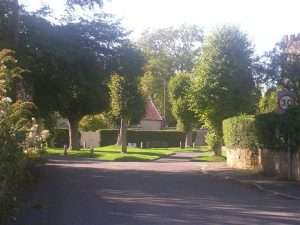Even an ageing rustic cleric could see it coming
The result of the Brexit referendum was surely not a surprise, was it? Even here, the referendum result was predicted two years ago, and if someone in a rural Irish Midland parish could foresee it, then important, significant people must surely have done so.
This piece was written following the European elections of May 2014:
“The success of the radical right in the European elections did not come from nowhere, nor did it come from a sudden espousal of extremist views by tens of millions of people. In England, the sort of people who voted UKIP are the sort of people you would meet in the pub on a Sunday lunchtime; they are neighbours, friends, even; they are ordinary working people. Overwhelmingly, they are neither racists nor xenophobes; they are simply people with a deep sense of alienation, people who have been ignored by the decision-makers, people who feel they do not count.
It is a decade since The Likes of Us: a Biography of the White Working Class was published. The author, Michael Collins traced the the stories of working class people in London and their palpable sense of hurt at becoming invisible to the political establishment. Collins describes a meeting with Sloppy Joe, a white working class Londoner, in which they talked about a brochure printed to promote the borough of Southwark.
“You wouldn’t think us English had ever lived here if you look at this.’ He opens it and taps a page . . .
“Southwark is a highly cosmopolitan area with a rich mixture of communities going back centuries. The borough’s proximity to the River Thames led to strong links across the world and by the 15th century Southwark had one of the largest immigrant populations. German, Dutch and Flemish craftspeople excluded by the City of London settled in Southwark … immigrants from Ireland took up manual jobs … the labour shortage was eased by workers and their families invited from the Caribbean and West Africa … communities from China, Cyprus, Vietnam, Somalia, Ethiopia, Bosnia and Croatia … just under a third of our population is from an ethnic minority and over a hundred languages are spoken by our children”.
‘They don’t mention us English’, Joe says. ‘You wouldn’t think we’d ever existed would ya?’ Joe sees himself as part of a long established tribe that dominated the urban working class within this area from the beginning of the nineteenth century and earlier. It has been air brushed from the history of the area as reported in the brochure. But how would it be represented? The white working class have never needed to define themselves or be defined before.
Collins’ work was ignored by the establishment, his views did not conform with the political discourse of the time, yet it explains the rise of parties ready to tap into the grievances felt by Sloppy Joe and all his friends.
The main political parties will continue in the hope that the present nastiness will go away. Continue to ignore those Collins encountered, and things are likely to become worse rather than better.”
The referendum result owed little to sympathy for an old Etonian and much to a sense of sheer alienation.



This will expose the fundamental instability at the core of the society in the UK, and frankly it will go a distance here too.
For what it’s worth I think the UK and Ireland would’ve been far better off leaving at the time of Maastricht. They’d given it a good go by then and simply used membership to reset things back before the second world war, and in some cases the first. Rather than adjust things more like the mainland societies.
It will be interesting in the next few years when the EU redeploys cash subventions towards the cities.
The end of CAP will bring the curse of interesting times!